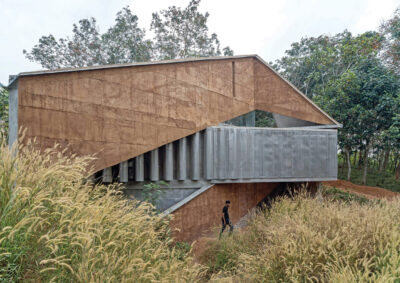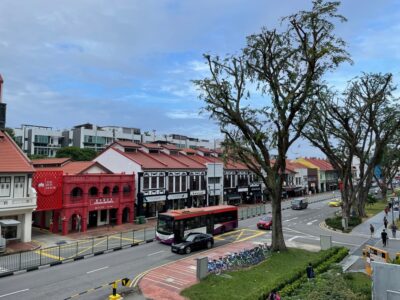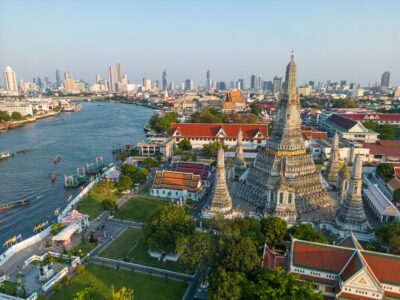Why foreign buyers have rediscovered an appetite for German real estate

Germany’s revitalised property market is attracting a new wave of affluent investors
Berlin leads the ‘Big 7’ cities in residential property transaction volume
The last few years have been a rollercoaster ride for Germany. The world’s fourth-largest economic power witnessed its economy slow down to near-standstill in mid-2011 after officially slipping into recession in November 2008.
But fast forward to 2014 and the federation is back on track. The economy recorded strong growth in H1, the national football team were recently crowned world champions and overseas buyers are again attracted to the real estate market.
“The German economy, which is number one in Europe, provides the biggest draw to investors,” says Alistair Meadows, head of global consultancy firm JLL International Capital Group in Asia-Pacific. “The size and stability of its real estate market offers low volatile returns, and the ability to access opportunities across a range of different cities—unlike London and Paris, there is no single German city that dominates its market.”
Although there is no predominant investment destination, the country’s seven leading markets—referred to as the ‘Big 7’, namely Berlin, Hamburg, Munich, Frankfurt, Cologne, Düsseldorf and Stuttgart—enjoy the bulk of transactions. The capital and largest city, Berlin, leads in terms of deal volume from foreign investors, although Meadows notes that foreign buyers tend to opt for Munich properties.
“The luxury segment has developed well in Munich,” Meadows states. “Munich is still showing the highest absolute values, followed by Hamburg and Frankfurt,” he says. “Berlin has shown the highest increase over the last couple of years but is still at a lower level compared to the other Big 7 cities.”
He adds that outside the prime segment, Berlin’s mid-range properties appeal to foreign investors, especially Asians, who usually invest in operating management platforms for residential buildings, whilst new-build properties in Munich, Düsseldorf, Frankfurt and Cologne are getting the most attention in general, followed once again by Berlin.

Philipp Steinke of Hong Kong-based real estate asset management firm BACC (Asia) Limited, which currently markets two new residential properties in the German capital, believes that Berlin will continue to grow for at least the next five to eight years at an increased pace.
“It has just started to pick up,” he says. “Unlike other major European cities, we are just at the start of the boom in Berlin,”
Affluent Asian buyers’ appetite for German real estate has also piqued of late. Wealthy investors, especially from from China and South Korea, have started to diversify their overseas portfolio with a European focus, purchasing a reported USD1.27 billion worth of properties in Germany by the end of 2013—a 916 percent increase from 2011, according to JLL’s industry publication The Investor.
“Like most Asian investors, Korean and Chinese investors have often invested into London as the initial investment destination when entering Europe but now they are seeking to diversify into other European markets. Germany is the preferred next market, given the size of its economy and liquidity of its real estate market,” says Meadows, adding that Beijing’s ‘Go Global’ policy is seen as a major push for China-based investors to explore international markets like Germany.
Many buyers are attracted by Germany’s lack of a capital gains tax, which is something that buyers in the London market will face when it is introduced in the United Kingdom in April 2015. In Germany, as long as foreign buyers hold their asset for at least 10 years, they are exempt from this duty.
“Now is an excellent time to invest in German properties,” Steinke says. “German banks also offer up to 70 percent financing at very competitive interest rates at 15 years fixed.”

At the recently held Residential in Germany: Assets for Value town hall talk, industry experts noted that there is also a rising investor interest in B cities and secondary locations, such as Heidelberg and Freiburg, where rent growth forecast is at 6 to 8 percent.
A proposed government legislation to control residential rent prices and lease subsidies could, however, dampen demand from buy-to-let investors. The move aims to protect leasers—about 56 percent of the country’s population—by modifying pricing regulations within a four-year lease agreement and prohibiting landlords from letting tenants shoulder fees that should be covered by building owners or real estate brokers.
“To put it simply, with the ‘Mietbremse’ the coalition aims to cap rents to 10 percent above the existing level in the respective housing area”, says Matthias Pink, associate director of Germany research at property services firm Savills Immobilien Beratungs GmBH. “[The rental break> is one of the priorities of the coalition government.”
Some analysts, including Alexander Lehnen, executive director for real estate tax at Ernst & Young Germany don’t expect the legislation to have a significant impact on the rental market.
“The legislation has not yet been finalised [and> different outcomes are currently in discussion,” he says. “We currently do not see reduced investment activity due to the planned legislation.”
Indeed, rent prices in the country, which have traditionally been affected by rising sales prices and investor demand, are expected to slow down accordingly in the near future.

“For the larger cities, we expect a slower speed of price increases [in the next 12 to 18 months>. Interest in the German residential market is still high and we currently do not see significant changes in the demand for housing or changes in interest rate levels that might affect the situation adversely,” explains JLL’s Meadows, who notes that domestic and foreign migration to the Big 7 cities is another key driver for price development.
More than a million people migrated to the country in mid-2013—the biggest surge in two decades, according to The Federal Statistical Office (Destatis)—but unlike in Spain or Portugal, there is no ‘Golden Visa’ scheme being implemented in Germany. Still, many overseas buyers are increasingly interested in purchasing property for investment purposes.
Also citing education as a driver, Meadows says: “Currently many B cities are experiencing rising interest, especially those with a university and those in regions that boast a prospering economy. These include cities such as Heidelberg, Freiburg, Münster, Jena, Hanover, but also Wiesbaden, Mainz, Greifswald and Regensburg.”
Furthermore, construction activity has steadily increased in the residential market over the past year, according to Pink, but due to the country’s shrinking population in many regions, he suggests that as of Q3 2014, there are an estimated 1.8 million vacant apartments across the country.
But with Germany’s growing UHNW population, which Singapore-based Wealth-X currently estimates is 17,820 with a combined wealth of USD2.345 trillion, the property market, especially the top tier segment, is likely to remain stable.
According to Fauzi Ahmad, director of communications at Wealth-X, UHNW investors in Germany currently allot an estimated 12 percent of their wealth on luxury real estate assets.
“In the next five years we expect Germany’s population to keep up with the average global growth rate in UHNW population and wealth of 4 and 5.4 percent, respectively,” he predicts. “This will lead to an UHNW population 22 percent larger in five years’ time, and the wealth is projected to be 30 percent higher.”
With many upcoming developments in major cities and secondary locations, notwithstanding a pending price control legislation, the German residential real estate market maintains its core appeal to international investors, which Savills’ Pink highlights as being: “political and legal stability, strong economy, market transparency and liquidity.”

Foreign investment in German real estate
- Generally there are no restrictions for foreigners to invest in Germany, but there’s no ‘Golden Visa’ programme; foreigners have the option to apply for a German residency permit instead.
- No capital gains tax for foreign investors as long as foreigners hold the asset for 10 years, but there is a real estate transfer tax of about 5 percent above the transaction price, says Alistair Meadows of JLL.
- Net yield is typically 3 to 4.5 percent, according to Philipp Steinke of asset managers BACC (Asia) Limited, and German banks can offer up to 70 percent financing at 15-year fixed interest rates.
- This year, a USD1 million budget can buy a 100 to 150 sqm apartment in major cities, according to Christian Schulz-Wulkow, partner for real estate sector leader (AGS) at Ernst & Young Germany.
- The German property market is slowly shifting to Tier 2 markets where there is higher rent growth forecast of 6 to 8 percent.
- A new legislation called “Mietbremse” that aims to cap rent prices is being discussed at the Parliament, says Matthias Pink, associate director of research, Savills Germany.
Notable residential projects in Germany
The country’s residential real estate offers a range of world-class developments that appeal to domestic and international buyers.

BE MITTE, Berlin
Available through Hong Kong-based BACC (Asia) Limited, this Berlin development began construction this summer season and will be completed in Q1 2016. Comprising 123 private, one- to four-bedroom apartments ranging from 48 to 136 sqm in size, the project located directly at Berlin’s famous Oder-Spree canal, features a private garden, terrace, balcony or rooftop access. Prices start from EUR159,000 (USD217,000).

GOSLARER UFER, Berlin
The 93-unit residential apartment project, which opens in early 2016, faces The Spree and is less than a kilometre away from major attractions. Offering one- to four-bedroom units ranging from 67 to 140 sqm in size, the waterfront property highlights include water views and a landscaped podium garden area. Units also either have a balcony, loggia, garden or rooftop terrace. Prices start from EUR229,000 (USD312,000) via BACC (Asia) Limited.

ATRIUM 37 PENTHOUSES, Munich
Located 200 metres away from Prinzregentenplatz in Munich, a city known worldwide for its luxury residences, the 10-unit Atrium 37 penthouses from Dankesreiter Grundbesitz, Bihler Baugeschäft, and agent Riedel Immobilien feature oak flooring, floor-to-ceiling windows, Dornbracht-fitted bathrooms, terraces, energy-saving amenities and increased soundproofing. Slated for completion in December 2015, units are priced EUR1.49 million (USD2.02 million) upwards, and hav e an underground parking with access to the house.

WASSERSTRASSE, Düsseldorf
Completed in January this year, the joint project between Kondor Wessels Projektentwicklung and Bema Development is located close to King’s Avenue and the Rhine Promenade in Düsseldorf, the seventh largest city in Germany that is known for its urban planning. With a total area of 4,000 sqm, the Wasserstrasse project offers exclusive ownership and duplex units of 150 to 280 sqm with a terrace or balcony and two underground parking spaces each.

YOO BERLIN, Berlin
‘yoo inspired by Starck Interiors’, the 95-unit luxury residences by the River Spree in Berlin city centre was conceptualised by UK-based designer Philippe Starck and the award-winning Eike Becker Architecken firm. Offering penthouses, townhouses and duplexes across 10 storeys, the branded development from Zurich-based Peach Property Group is walking distance to Friedrichstrasse train station. Prices range from EUR963,000 (USD1.3 million) to EUR3.75 million (USD5.08 million), plus EUR35,000 (USD47,300) for optional underground parking space.

BELVISTA/BELVIVO, Frankfurt
Slated to be completed in 2014, the 9,100 sqm BelVista residential complex on Europa-Allee from HOCHTIEF Solutions AG, comprising 122 rental apartments ranging from 68 to 125 sqm in size, offers a total of 11,400 sqm of living space. BelVivo, an L-shaped seven-storey structure that houses the apartments, has seven entrances, is equipped with energy-efficient heat recovery systems and conforms to the German Passivhaus standards. The complex will also feature 92 condominiums in the BelVerde section.
Image credits: Sean Pavone (Berlin), Mikhail Markovskiy (Düsseldorf), Jorg Hackemann (Frankfurt), Boris Stroujko (Munich), Olgysha (Cologne)
Recommended
Meet the vagabond architect behind India’s housing scene
Vinu Daniel is helping to shake up India’s home building setting
Where Asian real estate stands in a fragmented, warmer world
Asia’s real estate industry faces many and varied challenges as external factors continue to bite
6 sights to see in Singapore’s Marine Parade
Handily located Marine Parade has emerged as a vibrant investment choice in the Lion City
There’s a township dedicated to health and wellness in Malaysia
Property seekers have their health needs catered for at KL Wellness City








